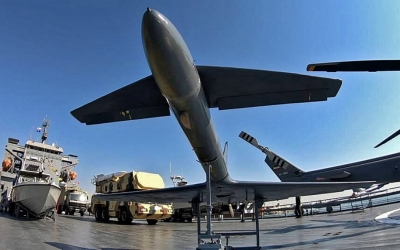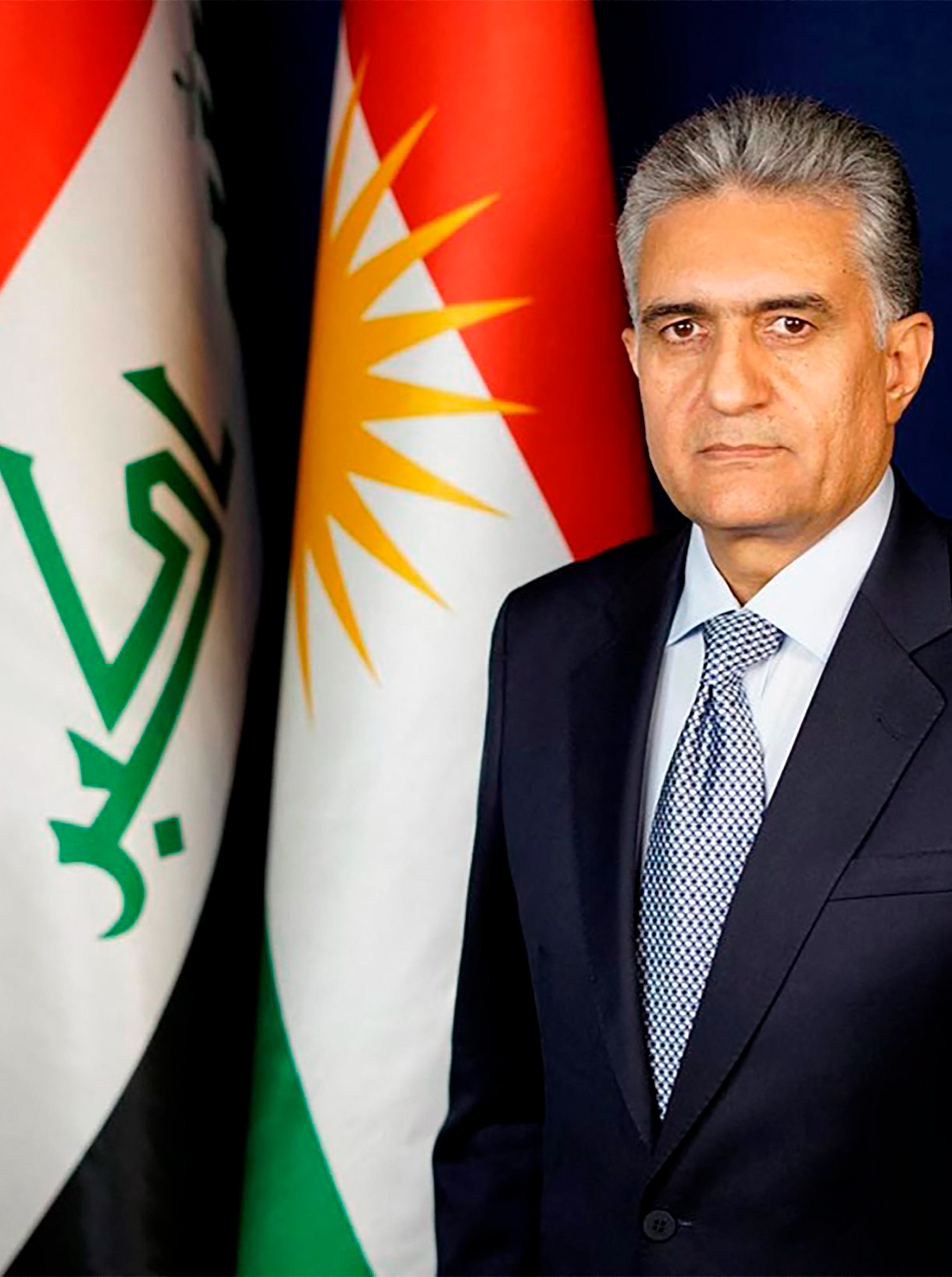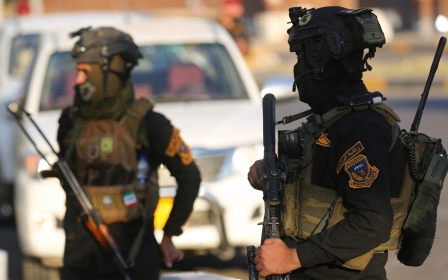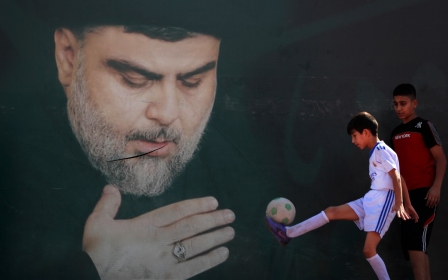Iraq's Tishreen MPs become kingmakers as Sadr and Maliki court independents
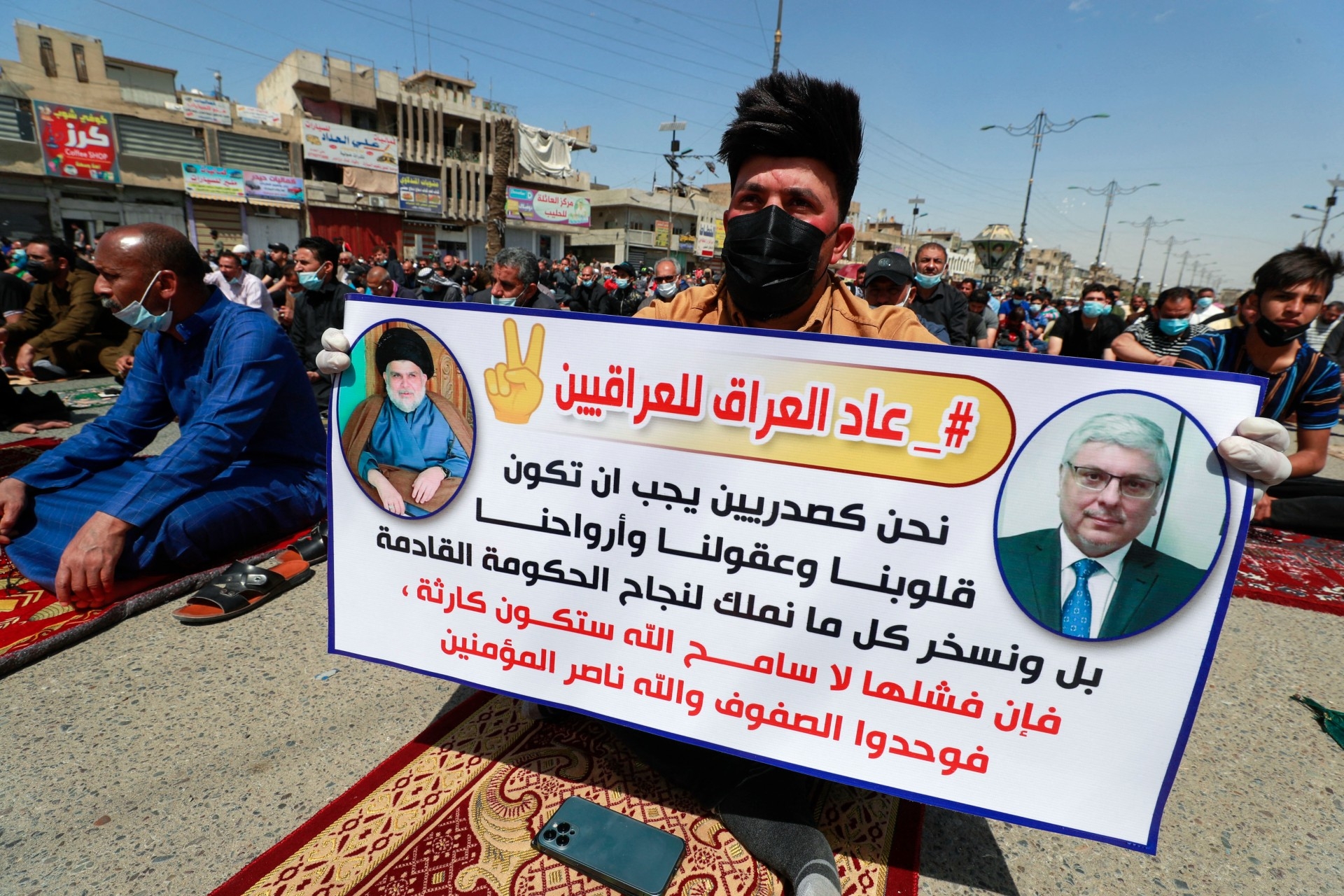
Independent MPs and small parliamentary blocs that emerged from the October 2019 protest movement are emerging as Iraq's kingmakers and may bring an end to the political hegemony of Iranian-backed factions.
On Saturday, a parliamentary session is scheduled to elect a president.
It is a key test for two rival political alliances: "Save the Homeland," led by the influential Shia cleric Muqtada al-Sadr, and the Iranian-backed "Coordination Framework," headed by former Iraqi prime minister Nouri al-Maliki.
In the hours leading up to the scheduled session, both coalitions are desperately attempting to win over enough MPs to tip the balance in their favour.
Sadr seeks to form what he calls a "national majority government" consisting of a broad coalition that would include some Sunni, Shia, and Kurdish blocs, but ostracise powerful factions allied with Tehran.
New MEE newsletter: Jerusalem Dispatch
Sign up to get the latest insights and analysis on Israel-Palestine, alongside Turkey Unpacked and other MEE newsletters
'These forces will not surrender easily, instability looms on the horizon, and independent parliamentarians, Sunnis and Kurds will be the first to pay the price'
- Iraqi analyst
Meanwhile, Maliki and his allies are focused on reviving an alliance of all Shia forces, seeking to take control of the government-formation process and bring all the largest players and people together in one government.
If Sadr and his partners succeed, they will end almost two decades of dominance over Iraq's political scene by Iranian-backed political forces.
It would also challenge and perhaps even begin the dissolution of the sectarian and ethnic political processes that have framed the governance of Iraq since 2003.
"If Sadr proceeds with his project and succeeds in forming a majority government, the biggest loser will be the Iranian-backed forces," an Iraqi independent political analyst, who declined to be named for security reasons, told MEE.
"It is not clear now to the extent that Iranian influence inside Iraq will be affected, but it is certain that the Iranian-backed forces will lose their hegemony over the political scene," the analyst said.
"The battle is fierce. These forces will not surrender easily, instability looms on the horizon, and independent parliamentarians, Sunnis, and Kurds will be the first to pay the price."
Achieving quorum
It's been six months since Iraqis voted in October's parliamentary elections, yet the forming of a government has been a fraught and stuttering process.
Both sides have used various legal and illegal tools to undermine each other and force their acquiescence, without success.
At first, it seemed Sadr was on his way to forming his desired government, with enough MPs on his side to vote it into office.
Then, in February, the Federal Court ruled that two-thirds of MPs needed to be present for a qurom to be reached to elect the next president, throwing a lifeline to Maliki and his allies.
Since then, Coordination Framework leaders have worked furiously towards securing a third of MPs who can act as a veto - or what Maliki terms the "guarantor of the rights of the majority".
With a parliamentary session slated for Saturday, all eyes are on who can gather enough MPs either to achieve a quorum or deny the chance to vote.
Qais al-Khazali, the commander of the Asaib Ahl al-Haq armed faction and one of the most prominent leaders of the Coordination Framework, predicted the session will not take place.
"Things are going in the direction of a conflict of wills or the breaking of wills," he said in a televised interview on Tuesday evening.
Khazali argued that the majority of Iraqis are Shia, believed to be 64-69 percent of the population, and Sadr's plans would undermine the community's right to have a leading say in the country's direction.
A vetoing bloc is necessary to ensure representation, he said. "We call it a guarantor third because it is a guarantor of the success of the state and the right of the majority."
Thirty votes
Essentially, Sadr and the Coordination Framework are vying for who has the right to nominate the next prime minister and form the government.
Constitutionally, that right is given to the largest parliamentary bloc following an election. Sadr's Sairoon Alliance won 74 MPs, by far the largest of any party.
But while the Iranian-backed Shia factions wilted in the latest polls, together in the Coordination Framework they have 83, which they say gives them the right to form the government.
Sadr tried to break a few Shia parties away from the Coordination Framework, without success. But he has allied himself with a number of Sunni blocs, led by Parliament Speaker Muhammad al-Halbousi, and Kurdish blocs, headed by Kurdistan Democratic Party (KDP) leader Massoud Barzani.
"Save the Homeland," as Sadr's coalition is known, consists of about 190 MPs, MEE has been told.
On Wednesday, the KDP's Rebar Ahmed Khaled was unveiled as the Save the Homeland candidate for president. Muhammad Jaafar Muhammad al-Sadr, ambassador to the UK and Muqtada's cousin, is its pick for prime minister.
Both rival coalitions claim they have the MPs needed to achieve their goals.
But a number of political leaders familiar with behind-the-scenes developments told MEE that both coalitions still need to secure the support of at least 30 independent lawmakers to proceed with their projects comfortably.
Constitutionally, the president must be elected before a candidate for prime minister is named and tasked with forming a government.
To secure the two-thirds quorum needed to convene parliament, Sadr has begun dragging independent MPs and small parliamentary blocs into the battle.
In an open letter circulated by his office on Monday, Sadr publicly acknowledged his coalition's inability to secure enough votes to proceed with forming a national majority government.
He invited the independents to support him in exchange for granting them the right to participate in what he called "running the country".
To translate Sadr's message into a practical reality, Ahmed al-Mutairi, head of the Sadrist movement's political body, and leaders of the "Save the Homeland" coalition held dozens of meetings with several political blocs and independents in Baghdad and Erbil.
They were held "to confirm Sadr's offer and reassure his future partners of his seriousness in giving them a role in choosing the government cabinet," an MP involved in some of the meetings told MEE.
'We are considering our options and we believe that this is our chance to get rid of the killers, or at least to perpetuate their loss'
- Iraqi MP
Sadr's tactics have been mirrored by his opponents, who are also trying to attract independents.
Most prominent are the "Tishreen" parliamentary blocs that emerged from the October 2019 anti-government demonstrations, including Emtdad (nine MPs), Eshraqat Kanoon (10), al-Jail al-Jadeed (nine), and al-Kutla al-Shaabiya (five).
Financial offers, promises of government positions, protection, and favours were tabled at all the meetings, according to several MPs who were approached by the rival coalitions.
"Both sides' offers included participating in choosing the prime minister and ministers, and obtaining some advanced government positions that will serve our audience,'' an MP who attended several of the meetings told MEE.
"The Sadrists asked us to attend the session only, and not to break the quorum. As for voting for their candidate or someone else, it does not concern them much. Meanwhile, the leaders of the Coordination Framework only asked us to not attend the session and help them buy some time to reach a deal with Sadr," the MP said.
Yet there are significant issues with supporting either side for the Tishreen MPs. Iranian-backed factions are accused of murdering several activists and demonstrators from the protest movement, while Sadr has also been denounced for allegedly attempting to co-opt it.
"We are considering our options, and we believe that this is our chance to get rid of the killers [the Iranian-backed armed factions], or at least to perpetuate their loss," the MP said.
"The evil of the Sadrists is much lesser than the evil of the Ataris," he added, using a name for the leaders of the Coordination Framework.
Focus on Tishreen
Convincing Tishreen MPs - particularly those from the Emtdad, Ishraqat Kanoon, and al-Kutlaha al-Shaabiyah parties - is Sadr's priority, political leaders familiar with talks run by his political office told MEE.
But both Sadr and his rivals have also issued statements threatening anyone standing in their way. Sadr described independents boycotting the session as "traitors".
"The Sadr alliance's problem is not limited to achieving a quorum. He is facing a problem related to Shia representation," one of Tishreen's MPs told MEE.
Sadr, who leads a significant Shia movement, has been accused by the Coordination Framework, which he was once a part of, of "tearing apart the Shia ranks".
In response, Sadr is keen to show that his vision is inclusive for Shia from other blocs.
"The members of our blocs [Emtdad, Ishraqat Kanoon, and al-Kutlaha al-Shaabiyah] are Shia and represent Shia areas more than anyone else," the Tishreen MP said.
"He needs our support for his project, to say that Shia from other political currents are aligned with him."
Middle East Eye delivers independent and unrivalled coverage and analysis of the Middle East, North Africa and beyond. To learn more about republishing this content and the associated fees, please fill out this form. More about MEE can be found here.


